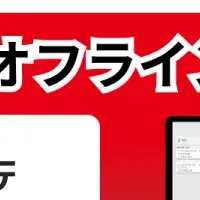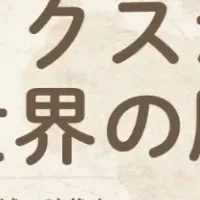
U.S. Chassis Manufacturers Seek Protection Against Unfair Imports from Mexico, Thailand, and Vietnam
U.S. Chassis Producers Take a Stand Against Unfair Imports
The U.S. Chassis Manufacturers Coalition has recently filed significant trade petitions aimed at addressing the importation of chassis from Mexico, Thailand, and Vietnam, which they allege are being sold in the U.S. at unfairly low prices. This move marks an important step for domestic manufacturers who claim their industry is under severe threat from these unfair trade practices. The coalition is requesting the imposition of antidumping duties to counteract these imports, which they elucidate are causing financial harm to U.S. chassis producers.
The Situation Unfolds
According to reports from Wiley Rein LLP, the petitions underscore that producers in the implicated countries are allegedly selling chassis at prices far below fair market value. The coalition has proposed antidumping duties at staggering rates: 32.37% for chassis from Mexico, 234.06% for those from Thailand, and a staggering 304.68% for imports from Vietnam. These requests highlight a significant concern within the U.S. manufacturing sector regarding the long-term viability of domestic production.
Moreover, the petitions indicate that chassis manufacturers in Mexico and Thailand are benefitting from numerous subsidized programs that have given them an unwanted advantage in the marketplace. These programs may include a variety of financial incentives such as tax exemptions, duty exemptions, favorable lending conditions, and grants from government agencies. Reports hint that there are also indications of cross-border subsidies from China that favor producers in Mexico and Thailand.
Historical Context
The issue of unfair imports is not a new struggle for the U.S. chassis industry. Following successful trade cases against the Chinese state-owned manufacturer CIMC in 2020, this manufacturer shifted its operations to Thailand, leading to a new wave of chassis imports targeting the U.S. market. This adaptation illustrates the dynamic nature of global trade practices and the continual need for vigilance from U.S. manufacturers. The coalition contends that this tactic is designed to preserve market share while utilizing unfair pricing methods that directly harm U.S. manufacturers. As a result, American chassis producers have reported significant declines in production, shipments, profit margins, and workforce due to these foreign imports.
Voices from the Industry
Robert E. DeFrancesco, a partner at Wiley and counsel to the petitioners, stated, "The U.S. chassis industry has endured years of injury due to the impact of unfairly traded chassis from China. After successfully obtaining relief, we are now witnessing a resurgence of these challenges from new market players. It’s evident that despite shifting sources, the consequences remain the same, harming a vital American manufacturing sector."
He further emphasized the urgent need for the U.S. Department of Commerce and the U.S. International Trade Commission (USITC) to enforce U.S. trade laws to combat these ongoing unfair practices.
Next Steps in the Process
The U.S. Department of Commerce is expected to make a decision on whether to initiate investigations within 20 days following the filing of the petitions. Meanwhile, the USITC will determine if material injury or the threat of injury is evident within 45 days. This entire investigative process is projected to last about a year, with the final determinations regarding dumping, subsidies, and injury expected in early 2026. Antidumping duties could be attached to imports even as early as the preliminary assessments are obtained.
Conclusion
As the situation continues to develop, the importation of chassis remains a pivotal issue for U.S. manufacturing. The outcome of this trade litigation will have lasting implications for the domestic chassis industry and its ability to compete on a global scale amidst complex challenges posed by unfair trading practices. The coalition remains resolute in seeking necessary measures to protect American jobs and ensure the sustainability of domestic manufacturing.
The representation of the coalition in this matter is being handled by Wiley Rein LLP, a firm that has made it their mission to support the U.S. industry amidst these troubling times.
Topics Business Technology)










【About Using Articles】
You can freely use the title and article content by linking to the page where the article is posted.
※ Images cannot be used.
【About Links】
Links are free to use.